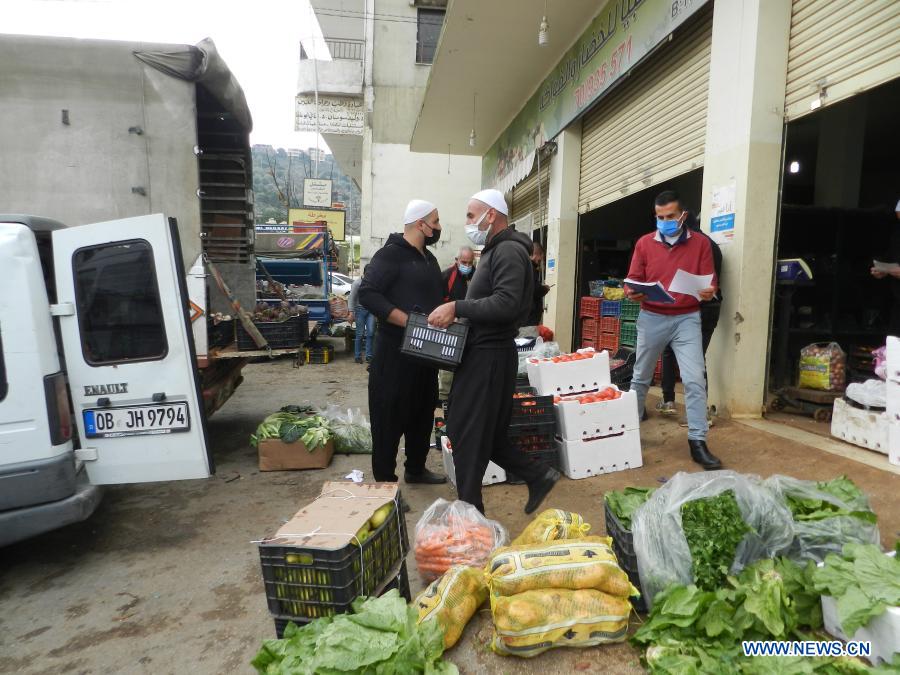
Workers prepare fruits and vegetables to be delivered to local residents in Nabatieh, southern Lebanon, on Jan. 16, 2021. (Photo by Taher Abu Hamdan/Xinhua)
BEIRUT, Jan. 17 (Xinhua) -- Since the early hours in the morning, Wassim Al-Ali starts his day by riding his bicycle to deliver daily necessities from the markets to local residents in his home village Nabatieh in southern Lebanon.
Al-Ali, who is in his 30's, even made rain-proof modifications to his bike as he has been using it on a daily basis to secure the villagers' needs while under the lockdown imposed by the Lebanese government in hope to curb the COVID-19 pandemic.
On a routine day, al-Ali, a farmer, usually works from 6 a.m. in the morning until 5 p.m. in the evening, delivering goods for local residents to meet their urgent needs during the home quarantine.
He receives the delivery orders via the "WhatsApp" on his cell phone, charging 2,000 Lebanese pounds (1.3 U.S. dollars) for each delivery within the village, and 7,000 pounds for any delivery to surrounding villages.
"It is a way to secure some income when the work in my field has been slow," al-Ali told Xinhua.
Jihad Hamid, who rides a small car to deliver the goods in the town Marjeyoun in southeast Lebanon, never expected to become a delivery man one day for local residents to purchase their needs ranging from fruits, vegetables, meats, canned goods, and cleaning detergents.
Hamid, who used to work as a salesman in a sweets shop, now finds himself free to do some deliveries and earn additional income to make ends meet for his family.
"Sometimes, I am too busy that I am not able to meet all people's requests," he told Xinhua, while looking at the lists in his hands.
Tamer Al-Ali, a 20-year-old worker in the delivery service in Khiam, southern Lebanon, told Xinhua that the delivery service, which was previously limited to major cities and commercial centers, has expanded rapidly to the countryside and villages during the quarantine time.
Zuhair Harfouche, the owner of a vegetable and fruit shop in the town of Hasbaya, southeast Lebanon, allows his employees to drive his four small cars to provide delivery services in the town, with only 2,000 pounds added to the charge for each bill.
Delivery services in Lebanon have become more popular over the past few years allowing businesses to reach a wider range of customers throughout the country.
Big companies usually use professional courier services to deliver their goods and services.
However, simpler and cheaper delivery services are more popular among the housewives in villages who can use the help of their neighbors and people in the nearby towns to secure their needs, especially during the lockdown.
Lebanon started its third nationwide lockdown on Jan. 7, which will last for 25 fives until Feb. 1, to stem the spike in COVID-19 infections.
Lebanon registered on Sunday 3,654 new COVID-19 infections, bringing its total number of cases to 252,812, while its death toll from the virus increased by 40 to 1,906.




